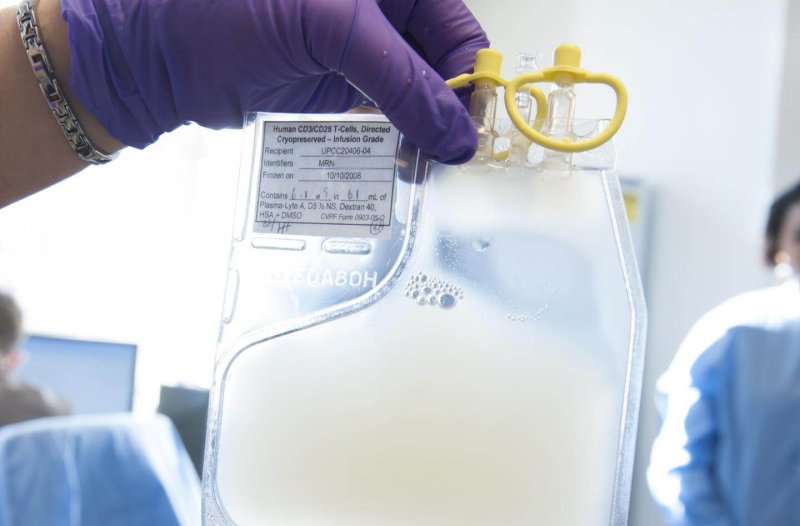Unlike traditional chemicals, CAR-T cells are living drugs that further proliferate inside the body. While great for replenishing their cancer-killing troops, it comes with the deadly caveat that the cells may go full-on berserk. Once unleashed, there are few ways to control their activity. In some cases, the good guys turn monstrous, releasing chemicals in a cascade that propel the body into immune overdrive. Left uncontrolled, the result is often fatal.
[Recently], a collaboration between the University Hospital in Würzburg, Germany and the Memorial Sloan Kettering Cancer Center in New York found an easy and reliable way to slam on the CAR-T brake. Rather than acting on CAR-T cells, the antidote severs downstream actions of the cells, leaving them in a dormant state that can be re-awakened.
The drug, called dasatinib, essentially puts CAR-T on a leash—one strong enough to stop deadly runaway immune reactions in their tracks. Currently approved for some types of leukemia, dasatinib is an old-school drug with over a decade of history.
…
“The evaluation and implementation of dasatinib as an on/off control drug in CAR-T cell immunotherapy should be feasible and straightforward,” the authors wrote.
Read full, original post: Cancer-Killing Living Drug Is Made Safer With a Simple Off Switch































